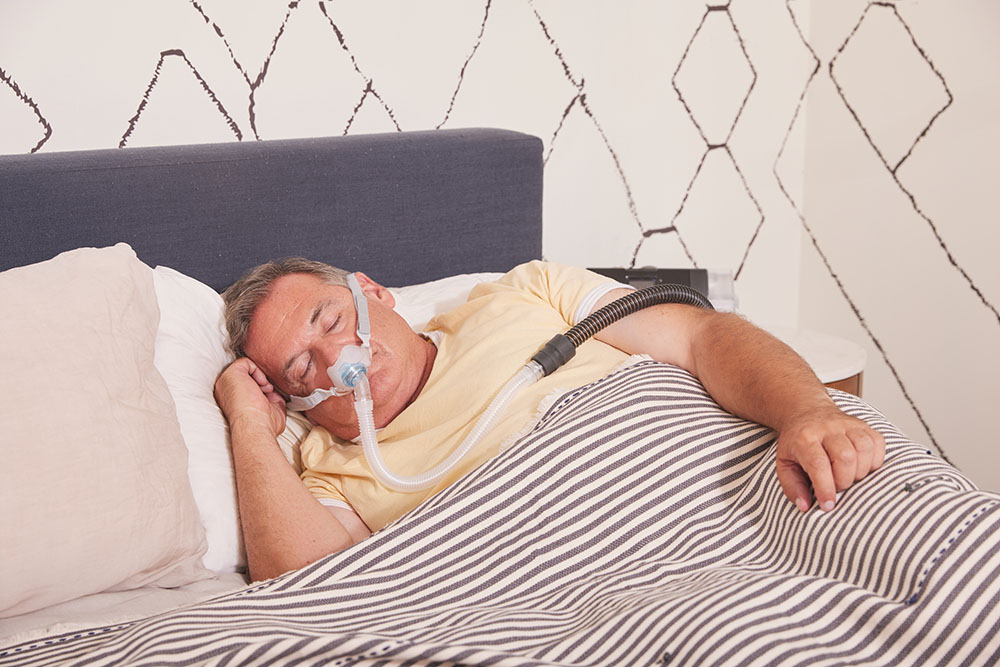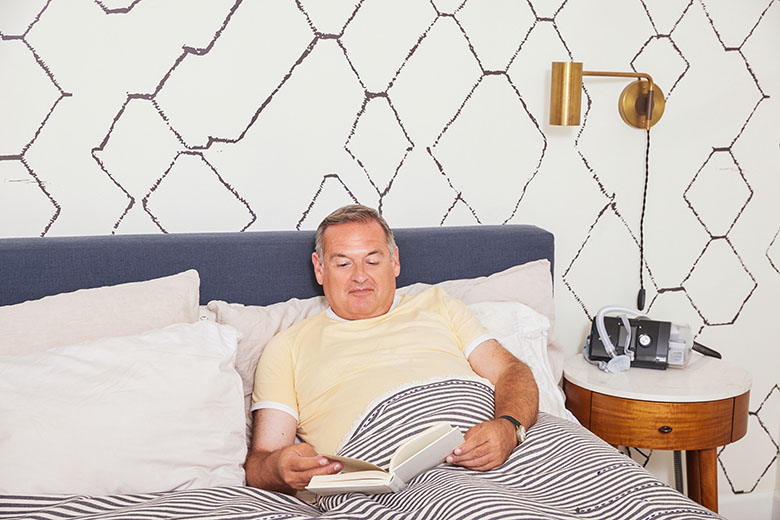When you have OSA, your airways get blocked as you sleep, and your breathing is interrupted repeatedly. For many people, continuous positive airway pressure (CPAP) is the best solution. This treatment uses a CPAP machine to deliver air into your respiratory system while you sleep to ensure you are getting adequate oxygen throughout the night. However, CPAP use can have specific side effects, including shortness of breath.
CPAP side effects: shortness of breath
Although side effects are typically mild, some CPAP users report feeling short of breath after using their CPAP machine. While it is uncomfortable, the good news is that this sensation usually is not your body struggling for air and is likely not cause for concern.
However, if you begin to experience other symptoms such as feeling faint, dizzy, or have an accelerated heart rate, you may be suffering from an underlying condition. If your shortness of breath or these symptoms persist, seek medical attention right away.
Other potential CPAP side effects
CPAP is a safe, effective therapy for those with sleep apnea. However, as with any medical treatment, there are potential side effects that can cause discomfort. These include:
- Nose and mouth dryness: This is the most common side effect of CPAP therapy. The air blowing into your face continuously during sleep can result in dryness, which can sometimes lead to nosebleeds.
- Skin irritation: Rashes or marks on your face can occur if your mask does not fit correctly.
- Air swallowing: This is a common side effect for those who use a CPAP machine and could indicate that your device's pressure is set too high. When this occurs, your stomach fills with air, which can cause burping, bloating, or flatulence.
- Lung discomfort: Inhaling cold air into the lungs from the machine can produce a burning sensation. Many humidifiers include a humidifier setting to warm the air and mitigate this effect.
Fortunately, the side effects of using CPAP machines tend to be mild and easily fixable by discussing your experience with your practitioner. Overall, most people who use a CPAP machine report better sleep cycles and much-needed relief immediately after starting treatment.
Lincare can help manage your sleep apnea — and its side effects
If you have been impacted by obstructive sleep apnea and are considering trying CPAP, talk to your practitioner about potential treatment options. CPAP is a well-established sleep therapy that can be easily tailored to fit the requirements of your condition. As a trusted partner for ten’s of thousands of respiratory patients across the country, the Lincare team can help make your treatment as effective and comfortable as possible.
Our experienced team will work with you to establish a routine that best fits you and your lifestyle. We offer various sleep therapy options:
- Home sleep testing: No need for back-and-forth visits to your practitioner. We will test your sleep apnea from the comfort of your home after your practitioner orders a sleep study.
- Training and education: Proper use and care of your CPAP and BIPAP machines are essential for optimal results. We will walk you through any questions or issues you are having.
- Assistance when you need it: Our clinical team is available to assist you anytime.
Your safety, comfort, and overall well-being are important to us. Whether you have a question regarding your treatment or supplies, we are on your side.



